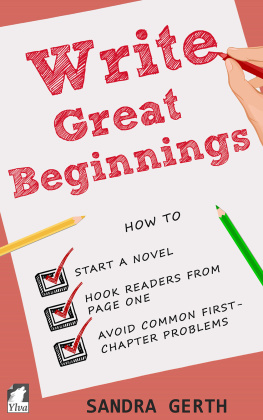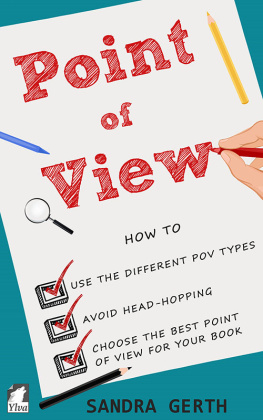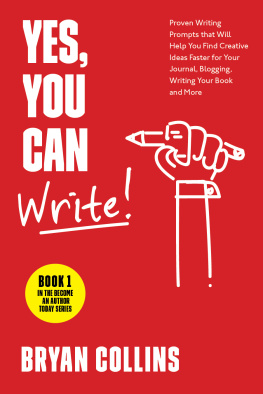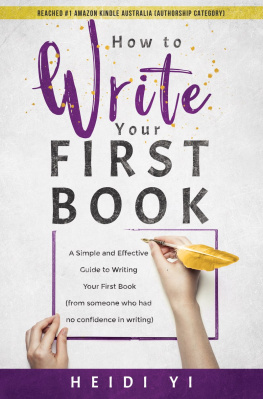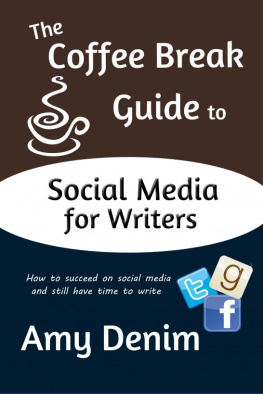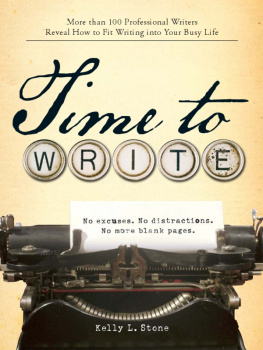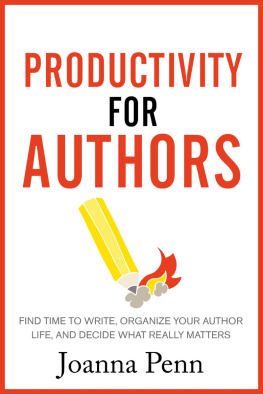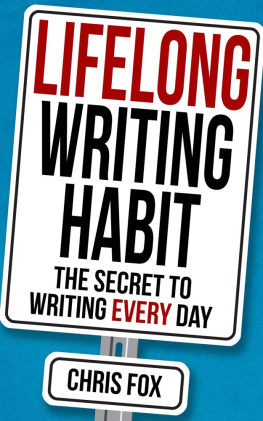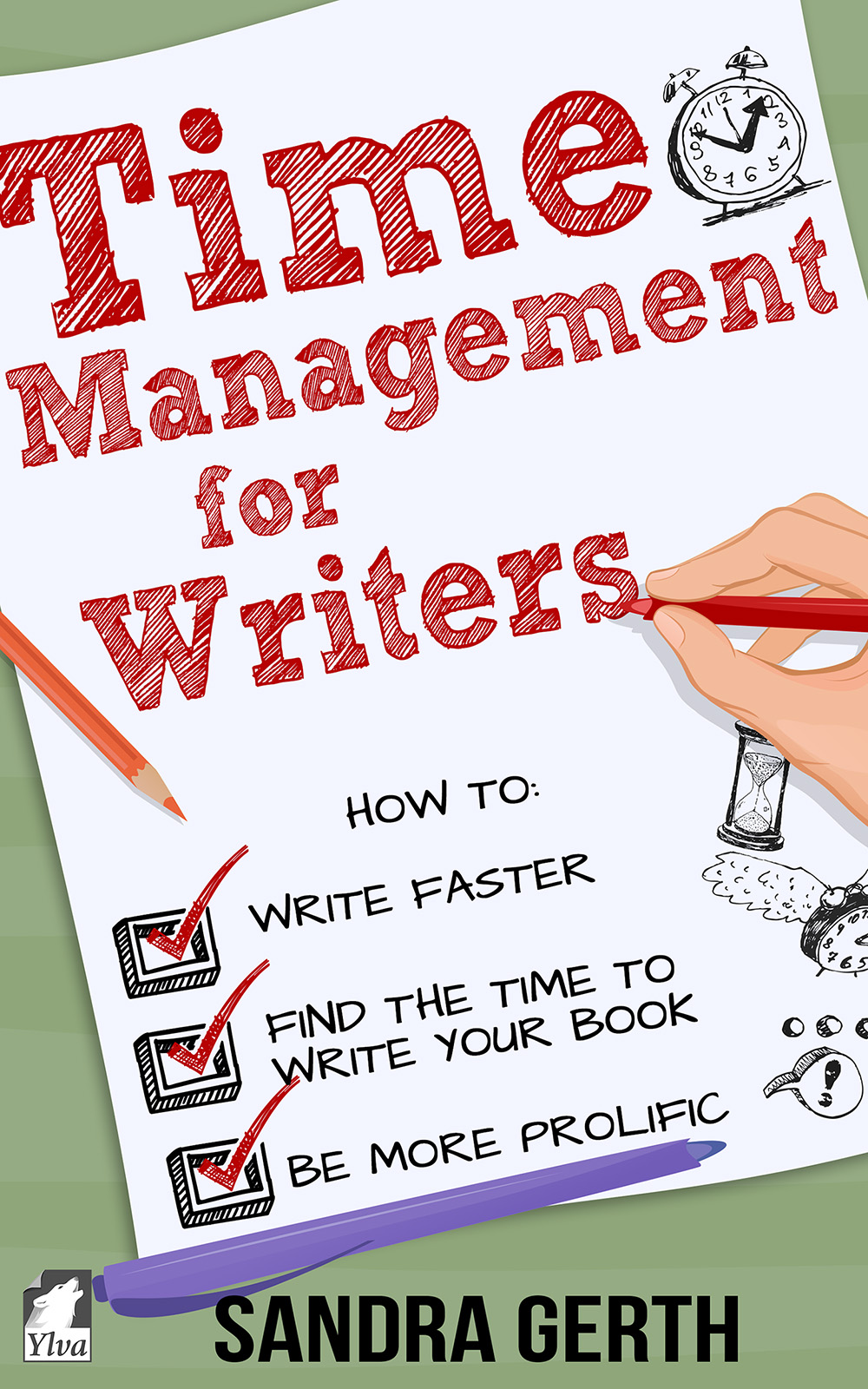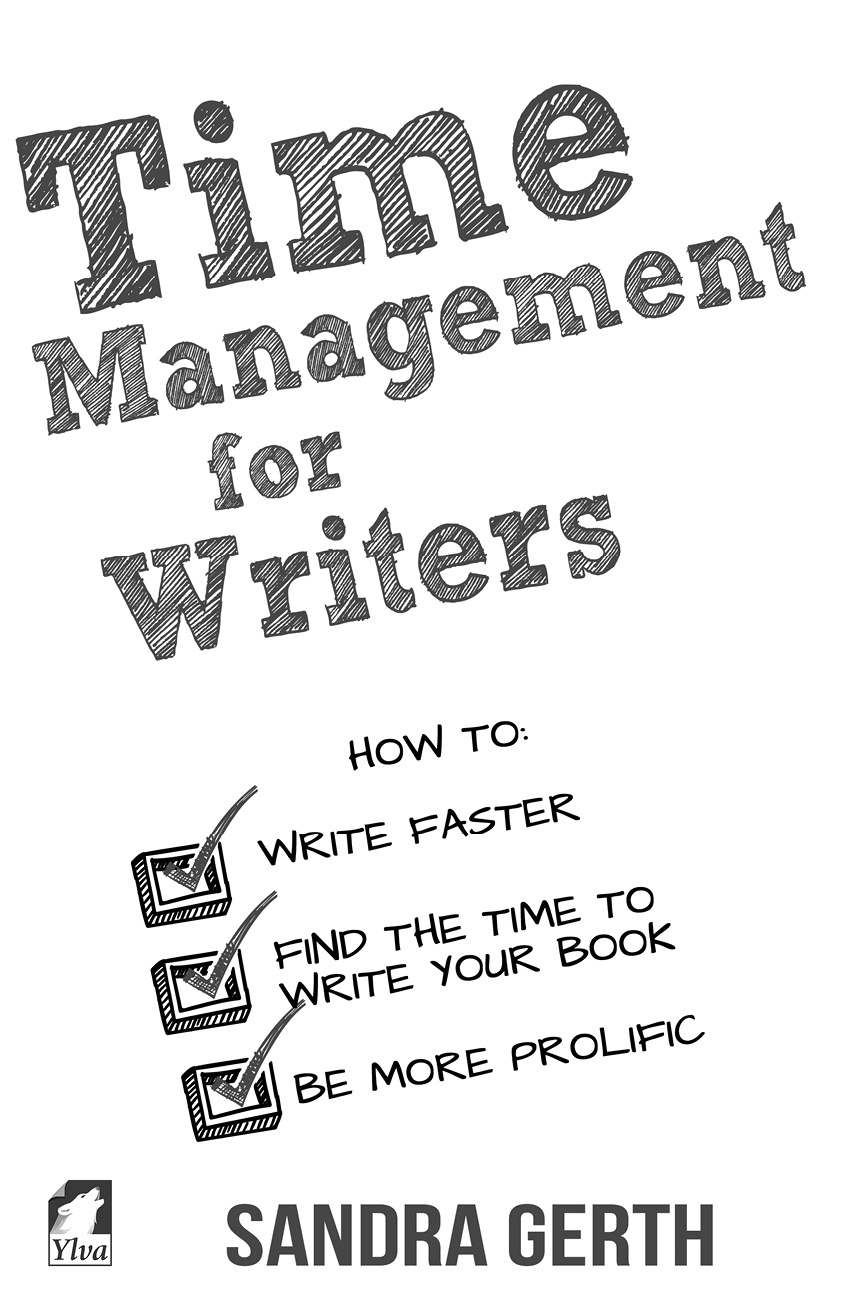
INTRODUCTION
In the digital age, publishing a book is easier than ever, but finding the time to write a book is becoming progressively harder. For many of us, the hardest part of writing is actually finding enough time to write. Most authors I know have day jobs, so they juggle work, family obligations, household chores, hobbies, friends, and other responsibilities.
At the same time, publishers and readers expect writers to publish multiple books every year. According to the New York Times, in the e-reader era, one book a year is slacking.
Authors are also expected to improve their writing skills and to market their books through blogging, social media, interviews, newsletters, and many other promotional activities. It seems as if there just arent enough hours in the day to do it all, even for full-time writers.
Even if you find the time to write, you might get less words onto the page than you wanted because you stare at the blinking cursor or get distracted by research, e-mail, or social media.
If any of this sounds familiar, this is the book for you.
Dont shy away from this book because you think time management is boring or restrictive or might even get in the way of your creativity. I know most writers and other creative people groan when they hear the words time management. Right-brain-dominant people often dont do so well with to-do lists, linear schedules, or rigid structures. But that doesnt mean that creative types dont need time managementquite the opposite. Having enough time is essential if you want to write. So what you need are more flexible time-management strategies that are geared toward writers. Thats what I provided in this book.
Whether youre writing fiction or nonfiction, whether you are a multipublished author or a beginner working on your first story, this book will help you to:
- find enough time to write, even if you have a day job and cant write full-time;
- use the time that you do have wisely;
- get your first drafts written more quickly while still writing well;
- find your most productive writing times and environments;
- avoid time traps;
- delegate or outsource tasks, even when you think thats impossible;
- avoid the bad kind of multitasking and do the right kind;
- find your ideal writing speed and planning style;
- work with your biological rhythms;
- use rituals to create a powerful writing habit;
- decide how much time to spend writing versus marketing;
- tame your e-mail in-box;
- use music to enhance your writing;
- beat procrastination and avoid the staring-at-a-blank-page syndrome;
- conquer fears and self-doubts;
- overcome writers block;
- deal with distractions and interruptions;
- participate in writing challenges to become more productive;
- use your computer more efficiently;
- manage your time as a full-time writer;
- discover tools and resources that help you focus on your writing.
WHO AM I?
In case youre wondering who I am and why I think Im qualified to write a book about time management for writers, heres a bit about me:
I have worked as a psychologist for eight years before giving up my day job in 2013 to make a living as a writer and editor. I wrote and published my first five novels (as well as several novellas and short stories) while holding down a stressful full-time job as a traffic psychologist and also taking on responsibility as the senior editor of a small but fast-growing publishing house.
By the time this book comes out, I will have published a total of twelve novels (under my pen name, Jae jae-fiction.com), two nonfiction books for writers, and two dozen short stories. I have also translated six of my novels into German, my native language. Im not telling you all of this to brag, but to show you that its possible to write a book, even if youre living a full life with several other important responsibilities.
HOW TO GET THE MOST OUT OF THIS BOOK
If youre reading this book, chances are you feel you dont have enough time to do everything you want to do. So instead of reading this book straight through intending to go back and implement the tips and advice later, stop after each chapter and take action immediately or you might never get around to it.
At the end of each section, youll find exercises that will help you incorporate what you just learned into your daily life. Get a notebook and write down your thoughts on each exercise. By the time you finish this book, youll have a time-management system in place that is custom-made for you and your situation.
There is no one right way that works for every writer, but this book can help you put together the right combination of strategies for your specific needs. Keep an open mind, give each strategy I mention a try, and then decide what works for you and what doesnt. Feel free to modify each suggestion to fit your personality and your life.
Tip!
Download the workbook and clickable list of resources
If youd like to have a clickable list of the resources mentioned in this book, you can download it at
http://sandragerth.com/resources.pdf
On my website, you can also find a workbook of all the exercises in this book. You can print it out and do the exercises as you go along:
http://sandragerth.com/exercises.pdf
Happy reading and writing!
Sandra Gerth
PART I Free up time to write
Part I is devoted to helping you find more time to write by exploring different strategies that work for different writers. You will find out why its so important to set up a writing schedule and create good writing habits instead of waiting for the muse to kiss you. This section also discusses whether its necessary to write every day.
Ill show you how to identify and get rid of your biggest time wasters. Youll discover how to say no and how to delegate and outsource tasks to someone else, even if you think thats impossible.
Finally, Ill show you what you shouldnt do to save timemultitaskand point out better options.
By the end of this section, youll have found ways to free up the time you need to get some writing done.
1. Find the time to write
Most writers dont write full-time. Most of us have day jobs or are stay-at-home parents. We have work, household chores, family obligations, friends, and hobbies, so finding enough time to write can be tough. Even if you are a full-time writer, youll spend a lot of time building a platform and promoting your work.
How do you find enough time to write? Here are a few ideas:
- Write in the mornings: For many writers, mornings are the most productive time of day because youre still fresh and have more energy. You could try waking up half an houror even an hourearlier to get in some writing before work. The advantage is that therell be fewer interruptions because everyone else is still asleep. No matter what happens during the rest of the day, you already got some writing done. Youll start the day with a sense of accomplishment. Even if youre not a morning person, Id still advise you to get your writing done as early in the day as possible, before all the other things in your life require your attention.
- Write in the evenings: Other writers write in the evenings; some even find that they are most productive at night, when everyone else is already asleep and there are fewer distractions around. Writing after work has been my routine for many years. But I know that some people are just too exhausted by the end of the day to get any writing done.


